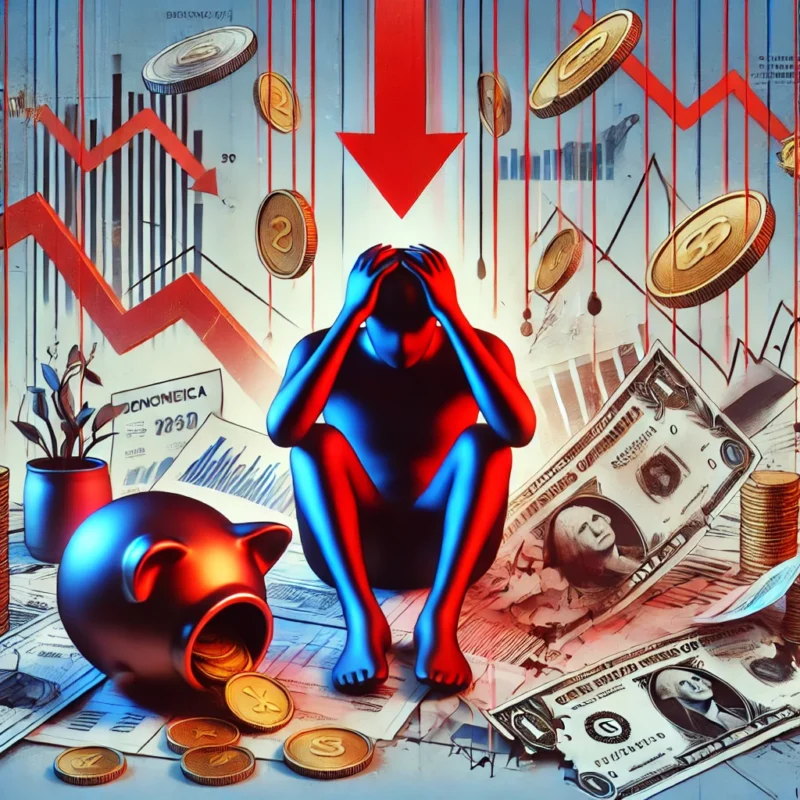Crisis can significantly impact mental health, disrupting emotional balance and amplifying stress. During such times—whether due to pandemics, economic downturns, or natural disasters—prioritizing mental well-being becomes crucial. The uncertainty and fear that accompany crises often heighten anxiety, making it essential to recognize the factors affecting mental health, identify early signs of distress, and adopt strategies for resilience. This article delves into these aspects, while also exploring the vital role of communities and societies in supporting mental health during challenging periods.
This article delves deeply into the various aspects of mental health during crises, exploring the factors that impact mental well-being, the signs of mental health decline, the consequences of poor mental health, and strategies to foster resilience. It also examines the role of communities, governments, and society at large in supporting mental health and concludes with lessons learned from past crises.
Table of Contents
Factors Impacting Mental Health During Crisis

During crises, various factors disrupt the balance of mental health. Understanding these influences is the first step toward addressing mental health challenges.
Economic Pressures
One of the most significant factors impacting mental health during crises is financial instability. Economic downturns, unemployment, and reduced income create a cascade of stressors. The inability to meet basic needs—such as food, housing, and healthcare—can lead to chronic anxiety and depression. For example, during the COVID-19 pandemic, millions of people worldwide faced job losses, causing widespread financial insecurity. This pressure is further exacerbated by rising healthcare costs, especially during health crises, leaving many unable to access necessary medical or psychological support.
Social Instability
Crises often destabilize communities, leading to a breakdown of social norms and structures. Political unrest, violence, and systemic inequalities create a sense of fear and insecurity. When community support systems such as schools, churches, or local organizations are disrupted, individuals lose valuable sources of stability and emotional connection. These disruptions make it difficult for people to maintain a sense of normalcy or find support during challenging times.
Isolation and Loss of Connection
Isolation is another significant factor affecting mental health during crises. Measures such as lockdowns or social distancing, while necessary to address health crises, often lead to feelings of loneliness and disconnection. The lack of physical interaction with friends, family, and colleagues removes critical emotional support systems. Additionally, the absence of routine interactions, such as attending work or social gatherings, can result in a loss of purpose and structure.
Overexposure to Negative Information
The modern era is characterized by an abundance of information, much of it negative during crises. Constant exposure to alarming headlines and social media updates creates a heightened state of anxiety. Misinformation and sensationalism further compound this problem, leaving individuals feeling uncertain and powerless. This phenomenon, known as “doomscrolling,” can trap people in cycles of stress and fear.
Personal Crises Within Larger Contexts
In addition to external stressors, personal crises often compound the challenges of broader societal issues. For example, the loss of a loved one, the breakdown of a relationship, or a serious health diagnosis can feel overwhelming during already difficult times. Grief is particularly challenging when traditional mourning practices, such as funerals or family gatherings, are restricted. Similarly, major life transitions, such as relocating or career changes, add to the emotional burden.
Signs of Mental Health Decline

Recognizing the signs of mental health decline is essential for early intervention and support. These signs manifest in various forms, including emotional, cognitive, physical, and behavioral changes.
Emotional Symptoms
One of the most common indicators of mental health challenges is emotional instability. Prolonged sadness, feelings of hopelessness, irritability, or a lack of interest in previously enjoyable activities are clear signs of distress. Individuals may also experience heightened anxiety, fear, or emotional numbness.
Cognitive Symptoms
Mental health issues often impact cognitive functions. Difficulty concentrating, indecisiveness, and persistent negative thought patterns are common. Individuals may ruminate on worst-case scenarios, struggle to focus on tasks, or feel overwhelmed by minor challenges.
Physical Symptoms
Mental health struggles frequently manifest as physical symptoms. These can include headaches, muscle tension, fatigue, and digestive issues. Chronic stress weakens the immune system, increasing susceptibility to illnesses. Additionally, sleep disturbances, such as insomnia or oversleeping, are prevalent and further exacerbate mental health issues.
Behavioral Changes
Behavioral changes are another key indicator of mental health decline. Withdrawal from social activities, neglecting responsibilities, or engaging in harmful coping mechanisms—such as substance abuse or overeating—are common. These behaviors often isolate individuals further, creating a vicious cycle of distress.
Consequences of Poor Mental Health

The impact of poor mental health extends beyond the individual, affecting relationships, productivity, and society at large.
Physical Health Implications
Chronic stress and mental health challenges take a toll on physical health. Prolonged exposure to stress hormones, such as cortisol, increases the risk of conditions like hypertension, heart disease, and diabetes. Sleep disturbances and poor dietary habits further weaken the body’s ability to cope with stress.
Relationship Strain
Poor mental health can strain personal relationships. Emotional instability, irritability, and withdrawal make it difficult to maintain healthy communication. This often leads to conflicts, misunderstandings, and feelings of isolation within families and friendships.
Reduced Productivity
In the workplace, mental health challenges reduce focus, creativity, and efficiency. Individuals may struggle to meet deadlines, make decisions, or collaborate effectively with colleagues. This can jeopardize job security and career advancement.
Development of Severe Disorders
If left unaddressed, mental health challenges can escalate into severe disorders. Anxiety and depression may develop into clinical conditions, such as generalized anxiety disorder or major depressive disorder. Post-traumatic stress disorder (PTSD) and substance use disorders are also common in the aftermath of prolonged crises.
Strategies for Improving Mental Health During Crisis

Despite the challenges posed by crises, there are effective strategies individuals can adopt to safeguard their mental health and build resilience.
Establish Healthy Routines
Creating and maintaining routines provides a sense of normalcy and control. Regular sleep, exercise, and healthy eating habits are foundational to mental well-being. Exercise, in particular, releases endorphins that reduce stress and improve mood. Incorporating mindfulness practices, such as yoga or meditation, enhances focus and emotional stability.
Foster Social Connections
Staying connected with loved ones is crucial during times of isolation. Regular phone calls, video chats, or messages can help combat loneliness. Participating in online communities or support groups allows individuals to share experiences and gain encouragement from others facing similar challenges.
Limit Exposure to Negative Information
Setting boundaries around news consumption is essential. Allocate specific times for checking updates and prioritize reliable sources. Balancing exposure to negative news with uplifting or positive stories helps maintain perspective and hope.
Practice Stress Management Techniques
Stress management techniques, such as deep breathing exercises, progressive muscle relaxation, or journaling, provide practical tools for coping with anxiety. Engaging in creative activities or hobbies offers a mental escape and fosters a sense of accomplishment.
Seek Professional Help
For those experiencing severe or persistent mental health challenges, seeking professional help is vital. Therapists, counselors, and psychiatrists offer evidence-based approaches to address mental health issues. Many crises have prompted the expansion of teletherapy and online mental health services, making support more accessible.
The Role of Communities and Society in Supporting Mental Health

Mental health is a collective responsibility. Communities, workplaces, and governments play an essential role in fostering environments that support mental well-being.
Community Support
Strong community networks provide emotional and practical support during crises. Local organizations, religious institutions, and neighborhood groups can organize resources, workshops, or group activities that strengthen social bonds and promote mental health awareness.
Workplace Initiatives
Employers have a responsibility to prioritize the mental health of their workforce. Flexible schedules, employee assistance programs, and workplace mental health initiatives create supportive environments. Encouraging open dialogue about mental health reduces stigma and fosters a culture of care.
Government Policies
Governments must invest in mental health infrastructure to ensure accessible and affordable care. Policies that support unemployment benefits, housing stability, and healthcare access mitigate the stressors that contribute to mental health challenges. Public awareness campaigns play a crucial role in reducing stigma and encouraging individuals to seek help.
Lessons from Past Crisis
Analyzing past crises provides valuable insights into managing mental health challenges effectively.
The COVID-19 Pandemic
The COVID-19 pandemic underscored the importance of mental health care. The rise in anxiety, depression, and burnout highlighted the need for accessible resources. Innovations like teletherapy and mental health apps became lifelines for millions. Virtual support groups and mindfulness practices gained widespread popularity, demonstrating the adaptability of mental health care.
Economic Recessions
Economic crises reveal the intersection of financial stress and mental health. Policies that provide unemployment benefits, debt relief, and job training programs alleviate stress and support recovery. Community-driven initiatives, such as food banks and mutual aid networks, showcase the power of collective action.
Conclusion
Mental health is an indispensable component of resilience during times of crisis. While external circumstances may be beyond our control, proactive efforts to protect mental well-being are within reach. Building healthy routines, nurturing social connections, managing stress, and seeking professional help are practical steps individuals can take to navigate challenges.
Equally important is the role of society in fostering a supportive environment. Community initiatives, workplace programs, and government policies must work in tandem to address the mental health needs of individuals during crises. By prioritizing mental health, we can create a foundation for personal and societal resilience, enabling individuals and communities to not only survive but thrive in the face of adversity.
Mental health is not a luxury—it is a necessity. Recognizing its importance and taking steps to protect it is an investment in a brighter, more resilient future. Through collective effort and individual action, we can overcome the challenges of crises and emerge stronger than before.
